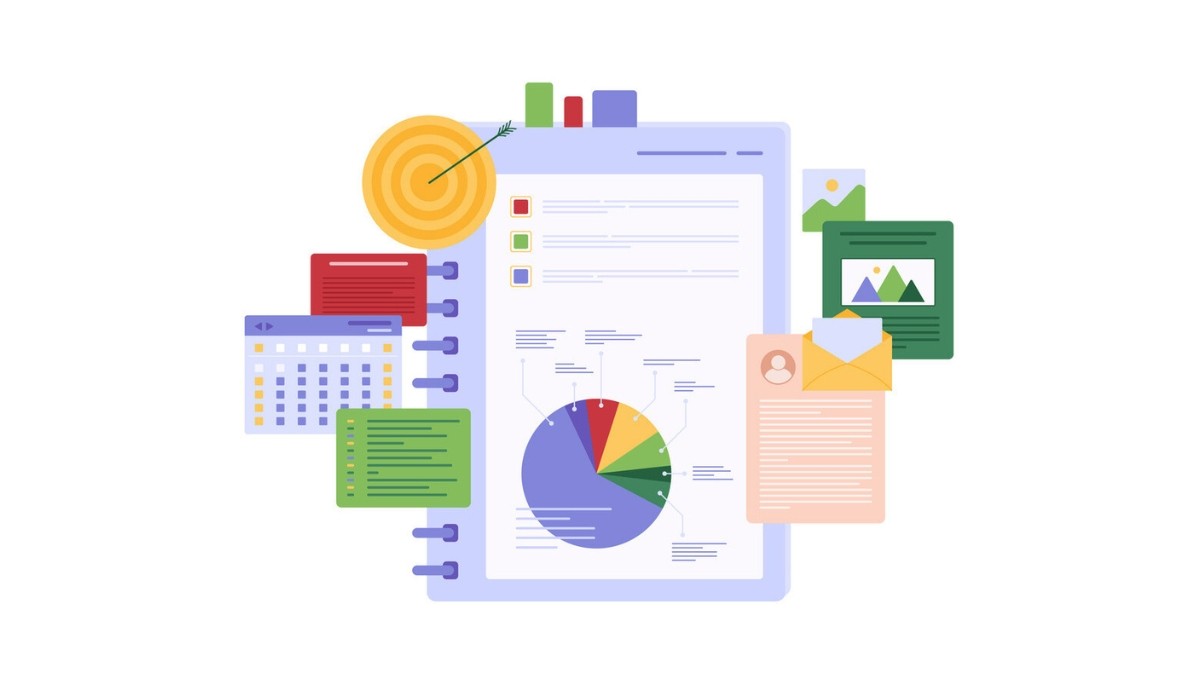Pascal Programming Basics, Examples, and How Coding in Pascal Works
By
Liz Fujiwara
•
Oct 15, 2025

Pascal is a high-level programming language developed for structured programming and teaching the fundamentals of software development. Created by Niklaus Wirth in the 1970s, Pascal was designed to encourage clear, logical programming practices and to provide a strong foundation for learning programming concepts. Despite its age, the Pascal programming language continues to be relevant today, serving both educational purposes and certain specialized commercial applications. In this article, we will explore Pascal’s main features, examine the benefits of using the language, and highlight the various contexts in which it is applied, from learning environments to niche commercial projects.
Key Takeaways
Pascal is a high-level procedural programming language designed for structured programming and teaching programming concepts, remaining relevant in education and specific applications despite the rise of newer languages.
Key features of Pascal include a strong typing system, a focus on structured programming, and the ability to support complex data structures and procedures, which improve readability and maintainability.
Pascal faces challenges such as limited modern library support and reduced community engagement, yet it continues to find applications in education, commercial software development, and operating systems.
Understanding Pascal Programming Language

Pascal is a high-level procedural programming language that emphasizes structured programming, making it an excellent choice for both beginners and experienced programmers. Developed by Niklaus Wirth in the 1970s, Pascal aimed to improve programming practices by promoting structured and efficient coding methods. This focus on organization and clarity has made Pascal a staple in academic settings, particularly for teaching programming concepts and high-level languages, including the C programming language, as well as low-level programming languages.
During the 1980s, Pascal gained widespread adoption in academia, becoming the preferred language for many programming courses. Its clear and readable syntax, coupled with a strong typing system, made it ideal for educational purposes. Even today, Pascal remains relevant in scientific and engineering projects, as well as business applications, despite the emergence of newer programming languages.
Every programmer should understand the appropriate situations for using Pascal. While it may not be the most modern language, its focus on procedural programming helps in writing and debugging programs effectively. Pascal’s legacy in teaching programming and its continued relevance in specific fields demonstrate its value.
Key Features of Pascal

The Pascal language is renowned for:
Its strong typing system, which enforces rigorous type checking and prevents type mismatches during compilation.
Ensuring that errors are caught early in the development process, making Pascal programs more reliable and easier to debug.
Supporting complex data structures and various data types, which can be constructed using records and dynamic variable allocation, allowing the creation of structures such as lists, trees, and graphs.
One of Pascal’s standout features is its reliance on procedures and functions, which allow for organized code and reusable components. This procedural programming language promotes a structured approach to coding, enabling programmers to break down large programs into smaller, manageable sections. Pascal’s syntax is designed to be readable and English-like, making it easier for novice programmers to understand. Additionally, Pascal is regarded as a prominent computer programming language.
Pascal has also evolved to include extended features such as Object Pascal, which supports object-oriented programming. This makes it versatile for various programming needs, from simple procedural programming to more complex object-oriented tasks. Turbo Pascal and UCSD Pascal are notable implementations that have contributed to the language’s popularity and widespread use.
Advantages of Using Pascal

Pascal was explicitly designed for teaching structured programming efficiently. Its advantages include:
Straightforward and legible syntax, making it an excellent choice for novices learning programming basics.
Continued preference in many computer science courses for teaching programming fundamentals.
Emphasis on structured programming, which helps in writing code with fewer errors and promotes better programming practices.
Organizing code into smaller procedures and functions is another significant advantage of Pascal. This approach facilitates easier debugging and maintenance, making it a preferred choice for educational settings and complex projects alike. The Pascal language continues to be a valuable tool for teaching programming and developing reliable software applications.
Challenges with Pascal
Despite its many advantages, the Pascal language faces several challenges in the modern programming landscape. The availability of modern libraries and frameworks for Pascal is limited, making it harder to find robust support for current programming needs. Integration with contemporary tools and technologies can be challenging, as many modern development environments favor newer programming languages.
Pascal’s community support has diminished over the years, leading to fewer resources and forums for developers to seek help. In the late 1980s, Pascal’s popularity declined as C and C++ became favored, especially in UNIX-based environments. Some of the programming paradigms in Pascal may feel outdated compared to newer languages that offer more advanced features.
However, despite these challenges, Pascal remains a relevant and useful language for specific applications and educational purposes.
Applications of Pascal Programming

Pascal programming is utilized in various fields, from education to commercial software development and operating systems. It is widely used to teach programming concepts and problem-solving skills, demonstrating Pascal’s versatility and enduring relevance.
Educational Programming
Despite a decline in mainstream use, Pascal remains a relevant teaching language for fundamental programming concepts. Its structured programming paradigm and readable syntax make it ideal for educational purposes. Pascal programs teach students how to write organized, error-free code, fostering a strong foundation in programming basics.
Pascal’s procedural programming focus helps students break down large programs into smaller, manageable sections, promoting better problem-solving skills and preparing them for advanced programming languages and concepts.
Commercial Software Development
Pascal is also valuable in commercial software development due to its portability across different platforms. Its support for object-oriented programming enables code reusability and easier sharing between programs. Borland Delphi, based on Object Pascal, continues to be a popular tool for rapid application development, especially for Windows applications.
Pascal’s ability to handle nested procedures allows for complex programming structures, making it suitable for developing intricate software applications. Notable commercial applications developed using Pascal include IBM PC software and desktop publishing programs. These examples showcase Pascal’s adaptability and relevance in the commercial software development landscape.
Operating Systems
Pascal has also played a significant role in the development of operating systems. The Free Pascal Operating System (FPOS) operates on Intel and ARM platforms, focusing on education and research. Laksen, an open-source real-time operating system in Pascal, aims at hardware independence for embedded systems and is utilized by companies such as Philips, Bosch, and Nokia.
StreamOS is a virtual environment written entirely in Pascal, allowing application development across multiple platforms. Additionally, the original Mac OS, particularly its Aqua interface, was developed using Pascal. These examples highlight Pascal’s capability in developing reliable and versatile operating systems.
Pascal Code Examples
To illustrate the simplicity and structure of Pascal, consider a basic ‘Hello, World!’ program. This program uses the writeln function to display text on the screen:
program HelloWorld;
begin
writeln('Hello, World!');
end.
The basic structure of a Pascal program consists of a program header, declarations, and a block of code that is executed sequentially. This straightforward format makes Pascal an excellent language for teaching programming concepts and developing simple applications, including the main program.
Pascal Compilers and IDEs

Pascal compilers and integrated development environments (IDEs) play a crucial role in modern programming. Key points about Free Pascal include:
It is an open-source compiler.
It allows modern development on multiple platforms.
It maintains compatibility with legacy Pascal code.
It supports both Pascal and Object Pascal, making it versatile for various programming needs.
The Free Pascal compiler includes packages and a runtime library that support a wide range of programming functionalities. Additionally, the pas2js translator allows Pascal code to compile into Java, expanding its potential uses in web development. Free Pascal’s combination of modern features and compatibility with older code makes it a valuable tool in contemporary programming.
Pascal vs Other Programming Languages
Pascal’s structured approach distinguishes it from other programming languages in several ways:
Unlike C, where variable declarations can occur anywhere, Pascal requires all local variables to be declared at the beginning of a block structure.
This promotes better programming practices.
It makes programs more readable and easier to debug.
Pascal’s adaptability and usability in various applications highlight its unique place among programming languages. It has been utilized in scientific projects, engineering applications, and desktop publishing, showcasing its versatility and enduring relevance.
The Role of Pascal in Modern Programming
Pascal’s impact on structured programming has influenced many subsequent programming languages, including Modula-2, Ada, and other Algol-based languages. Its emphasis on organized and efficient coding practices has made it a foundational language in the development of popular commercial applications, demonstrating its significance in business software.
Pascal supports object-oriented programming, expanding its capabilities beyond simple procedural programming. This versatility has allowed Pascal to remain relevant in modern programming, despite the emergence of newer languages. Its role in teaching programming and developing reliable software applications underscores its enduring value.
Hiring Pascal Programmers with Fonzi
Fonzi streamlines the recruitment process for companies looking to hire proficient Pascal developers through specialized events. Utilizing Fonzi, employers gain:
Access to a network of pre-vetted Pascal programmers
Increased efficiency in their hiring efforts
An AI-driven approach that ensures companies are matched with Pascal programmers who meet specific project needs
Fonzi makes hiring fast, consistent, and scalable, with most hires happening within three weeks. This platform maintains a positive candidate experience, ensuring engaged, well-matched talent. Whether you’re an early-stage startup or a large enterprise, Fonzi supports your hiring needs from the first AI hire to the 10,000th.
Summary
Pascal remains a valuable programming language with a rich history and enduring relevance. Its structured approach, readability, and emphasis on procedural programming make it an excellent choice for teaching programming concepts and developing reliable software applications. Despite some challenges, Pascal continues to be used in educational settings, commercial software development, and even operating systems.
As you consider Pascal for your programming needs, keep in mind its unique advantages and the support available through modern compilers and IDEs like Free Pascal. For those looking to hire Pascal programmers, Fonzi offers an efficient and reliable recruitment process. Discover how Pascal can support your projects and make the most of its strengths!
FAQ
Why is Pascal still relevant in modern programming?
What are the key features of Pascal?
What challenges does Pascal face in the modern programming landscape?
How does Pascal compare to other programming languages like C?
How can I hire proficient Pascal programmers?



